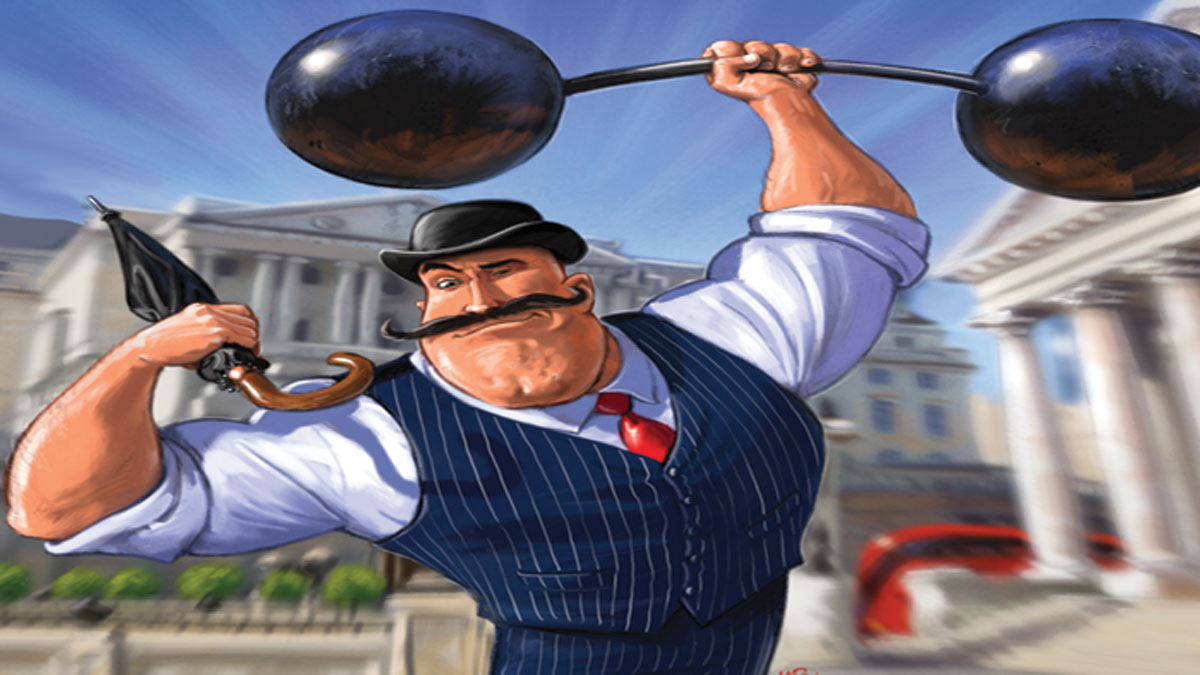
This week in MoneyWeek magazine, Charlie Morris tips two of Britain’s best banks; Matthew Lynn explains why Germany’s banks could be set to spring some “nasty surprises”; and we cast an eye over the various asset classes to see where you should put your money now.
Find out what we think with a subscription to the magazine. It includes full access to the website and smartphone app too.
Britain’s banks are fixed – and offer tremendous value
Banks took a massive beating after the financial crisis of 2008. After overextending themselves, they “had to become conservative fast”. They “cut lending and devoted any profits to recognising and writing off bad loans”. It’s been a long, hard process, but “it looks as though we’re there now”, says Charlie Morris in this week’s cover story. With their balance sheets repaired, banks now represent “one of the best value plays around right now”.
There’s plenty of competition, though, and not just from other banks. As in virtually every other industry, new technology is “disrupting” banking. Retailers and financial technology companies are building their own payment systems. Central banks are mulling setting up their own bitcoin-style digital currencies. And the “strange financial environment we find ourselves in” means customers are turning away from depositing their money in banks to use government bonds instead.
But if conditions change – and they eventually will, then bank stocks could be one of the best investments around. Charlie picks the two banks you should be buying now. Find out what they are with a subscription to the magazine.
But beware Germany’s banks
Britain’s banks may be fixed, but that’s not true of those on the continent, says Matthew Lynn. They may have been “stress tested” by the European Banking Authority, which pronounced them to be in good shape, but “in truth, the eurozone’s banks remain under intense pressure”.
Italy’s withering economy is creating a “mountain of bad debts” as small businesses fail. And in Germany, “massive trade surpluses are being recycled to bankrupt economies through the banking system”, says Matthew. Deutsche Bank’s well-publicised share price slide “tells you something nasty lurks in Germany’s finance system, and it may burst into the open at any time”.
You have been warned.
Asset classes – what to buy now
This week’s issue is the first of the month, so it’s time for our look at the various asset classes. Picking good stocks is all very well, but just as important is selecting the right mix of assets. Should you put more money into property, bonds, or gold, or hang on to it as cash?
Find out, by a subscription to the magazine.
Smart money, the Brexit effect, and pay to save
Matthew Partridge’s investment strategy this week deals with “smart money”. Some analysts like to class investors as either “smart” (professional investors) or “dumb” (retail investors), with the smart investors performing much better than the dumb. That sounds very arrogant, but is it true? Matthew finds out.
In this week’s investment briefing, John Stepek examines how leaving the EU will affect trade. If we have to come up with new trade agreements with every country that wants one – apparently there are at least 27 who have expressed an interest – it could be a long, tricky affair. But there is an alternative, says John: “unilateral tariff disarmament”. Find out what he means with a subscription to the magazine.
It can’t possibly have escaped your attention that UK interest rates fell for the first time in seven years yesterday. They’re now hovering just 0.25% above zero. And it’s quite possible they’ll head below zero some time in the future. NatWest began warming its customers up for that eventuality last week, when it announced it could charge commercial customers to deposit money. We could find ourselves in the “topsy-turvy world of negative rates” before we know it, says Sarah Moore. She looks at what the result might be if that does happen. Later on, on her funds page, Sarah looks at two stock-picking strategies, and how they affect performance.
I look at Rolls-Royce on the shares page – the engine-maker has a new CEO who’s hoping to turn it around. Plus, there’s the usual round-up of shares from the country’s financial press, lots on pensions, personal finance and investing in property; and five pages of houses, cars, wine and travel.
Tuck in to all this – a subscription to the magazine.